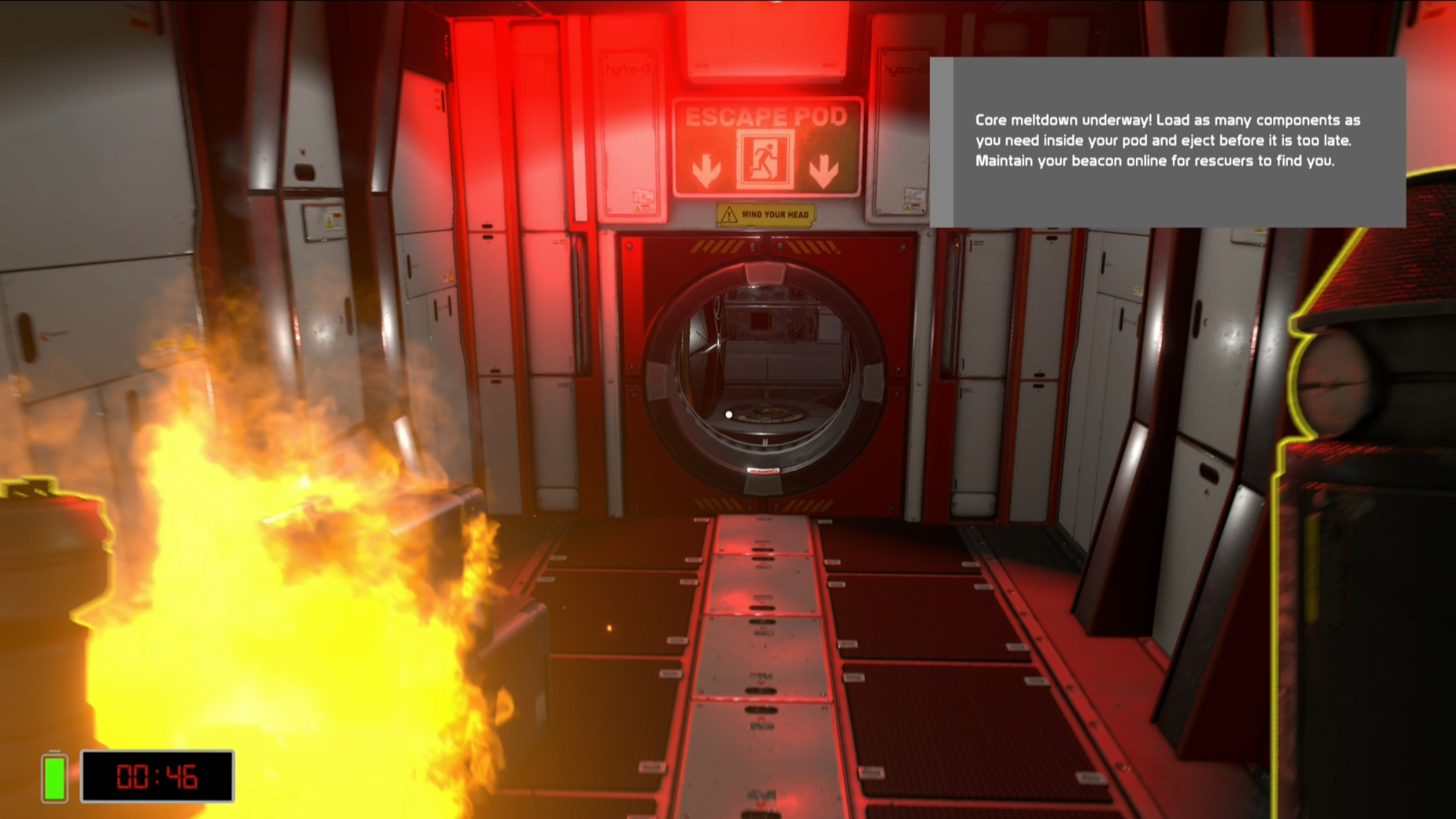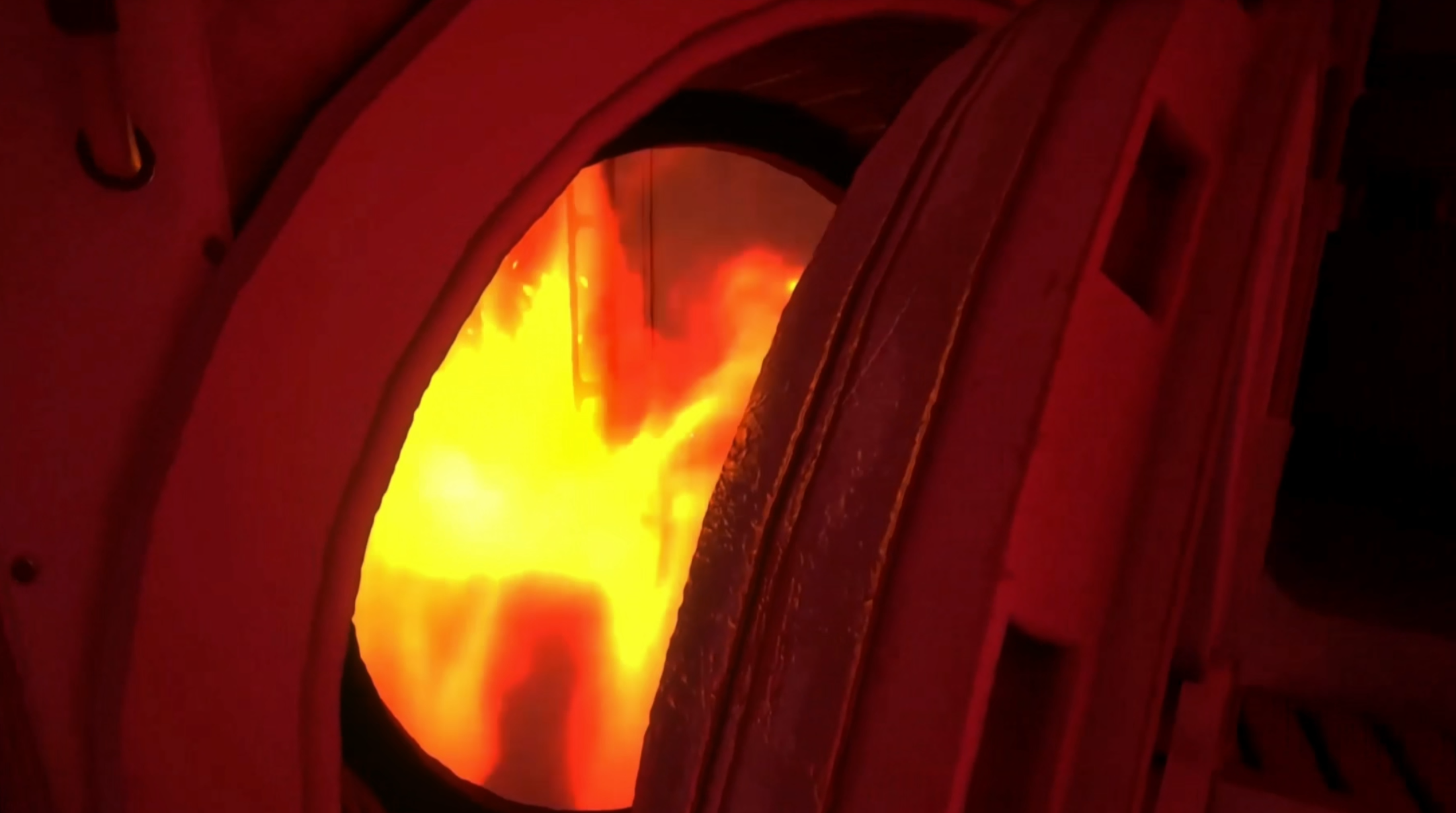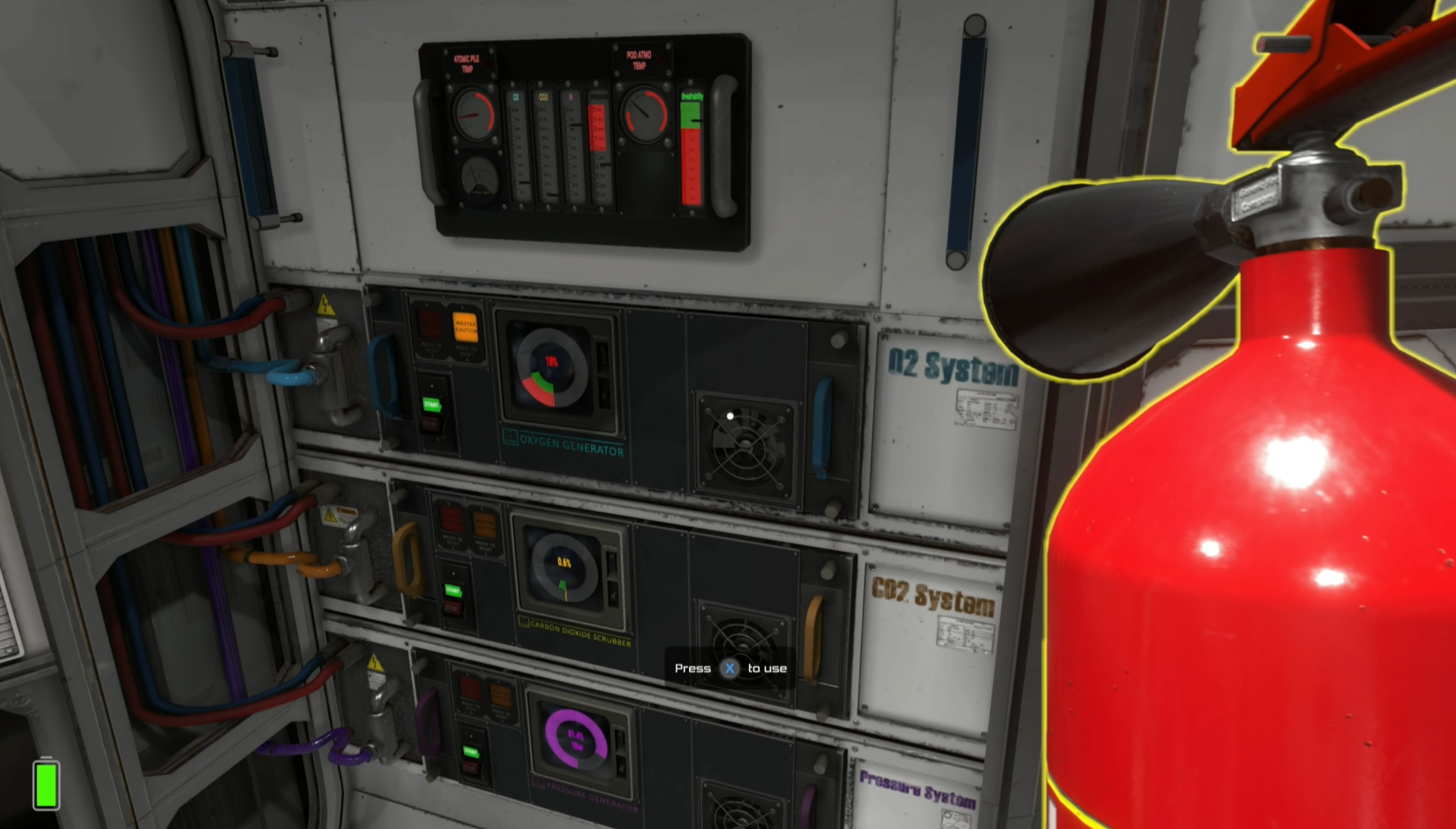Tin Can review
2023-06-19 by Mike Alexander
Reviewed on
Xbox Series XPlatforms
Playstation 4, Xbox Series X och Series S, Xbox One, Microsoft Windows, Playstation 5
Developer
Tin Can StudioPublisher
Tin Can Studio
It’s launch day.
After ten years of hard work and dedication, you can finally call yourself an astronaut, and your journey beyond the bounds of Earth’s atmosphere is set to commence in a few short hours. You spend time with your family, prepare, and finally meet up with your crew for the final checks before boarding. Your body tingles with fear and excitement in equal measure.
A decade’s worth of knowledge resides in your cranium, and you’re prepared for anything. So, when the space station you traveled to and called home for weeks begins to fall apart, you know exactly what to do. You trained for this. So, you manage to escape in a dinky escape pod, and you have no trouble keeping it going until help arrives despite all kinds of malfunctions.
Now, imagine yourself in this situation with only ten to twenty minutes worth of tutorials under your belt, you’re aboard that same escape pod that is so prone to falling apart in any number of ways, and you basically have the experience of playing Tin Can. It’s stressful, thrilling, and definitely frustrating at times, but it can also be quite fun.
Let’s take a look at the Xbox version of the game in this review.
Tin Can is an escape pod simulator/survival game with a shocking level of depth. You’d think the game was developed by a team of actual engineers, but it was actually created by a team of four mad lads that make up Team Can at the France-based Tin Can Studio. This is their first game as a studio, but the members responsible for development all have eight to ten years of experience in their respective fields, so it’s not a rookie endeavor by any stretch of the imagination.
That much is clear in the game’s thoughtful systems that seem confusing and overwhelming at first, but they’re so logical that it all just makes sense before too long. Thanks to their vision and talent, Tin Can Studio has managed to create something that feels really unique in a genre that some might say is growing out of control, and that alone is worth commending.

A Simulator Game… IN SPAAAAAAACE
You see, the “simulator” genre has been on a bit of a tear in recent years. Farming simulators, truck driving simulators, cooking simulators, they’ve all made their appearance in the industry. Hell, I’ve personally been enjoying Powerwash Simulator quite a bit lately. But here’s the thing: they’re all just a little too… terrestrial.
For better or worse, Tin Can bucks that trend.
Let’s talk a little about how Tin Can works. Players take on the role of an astronaut who finds themselves on an exploding space station.
Yeah, a little stressful right off the bat.
The game is played in the first-person perspective, and PC Building Simulator fans might feel right at home (in more ways than one). The core gameplay sees you grabbing whatever parts and supplies you can from the imploding space station before rushing to the titular Tin Can, a Medusa-class escape pod that has an interesting hexagonal design.
Once you’re ejected into the cold, cruel vacuum of space, you’re on your own, and this is where the simulator gameplay comes in. Systems fail, components break, and in lieu of a health bar or any kind of meter, the player character feels the effects of whatever has gone wrong. Their vision gets blurry, they begin to move slower by the second, and if the issues don’t get resolved, they perish. It’s kind of terrifying actually, but it’s also a great incentive to figure out what’s going on and fix it as quickly as possible.
Frantically trying to diagnose and repair issues before succumbing to the crushing weight of mechanical failure or user error is about as realistic as I think this kind of scenario can get, and isn’t that really what the simulator genre is all about?

Depending on which mode or level of difficulty you’ve doomed yourself to, there is a laundry list of things that can go wrong. Thinking on your feet is crucial, and the added stress of, you know, DEATH, really ups the stakes.
However, I wouldn’t say Tin Can is unfair in its difficulty. Don’t get me wrong, you’re going to fail quite a bit, but every scenario has a reasonable solution or several that can be tested in an appropriate amount of time. Another appropriate comparison to PC Building Simulator can be made here, as the process of reading error codes and matching parts for replacement or repair is extremely similar in its execution. That piece doesn’t work anymore? Take it out and pop a new one in.
However, you aren’t just dealing with a single PC tower at a time. The Tin Can has around ten different systems that you have to keep an eye on, from the 02 and C02 systems that keep you breathing to the atomic pile that powers everything and the main computer that keeps track of all of the processes. You might even have a fire break out somewhere and have to put it out. Like I said, there are plenty of things that can go wrong, but at least there’s a handy manual on the craft to help figure things out.
The issue then becomes matching up error codes to potential solutions. Is the air tank empty? Did the power connector go bad? Why did all of the lights just go out? A particularly fun run for me featured the repair of one issue just as another error code popped up, and I couldn’t figure out if what I did caused that error or if it was a separate issue entirely.
I didn’t manage to survive that run.
I thought that scenario was fun and hilarious, but I was also eight or so hours deep into my time with Tin Can at that point. Even now, I’m not sure if it has won me over or if I’m experiencing some kind of Stockholm Syndrome. Sometimes I lean toward the latter explanation, especially when things get hectic…

Fumbling with Components
In case you’ve forgotten, this review is covering the Xbox version of Tin Can, which I played on an Xbox Series X. There are no issues with performance, and while the game isn’t the most graphically impressive one I’ve played on the system, it is perfectly serviceable in terms of visuals. The focus of the game is really on the systems and components, and those work great.
What doesn’t work so great is how you actually move around and interact with the world.
Tin Can is clearly a game that was built for the PC, as with most simulator games. So, an issue that the genre has as a whole also unfortunately extends to Tin Can: using a controller for something that was designed for a keyboard and mouse sucks more often than not.
You can adjust the camera sensitivity with a slider in the settings menu, but no amount of fiddling I did gave me the preciseness the game really requires when things get really stressful. Sometimes, components are very close together, or small enough to make actually targeting them frustrating, especially when your hands are already shaking with anxiety. It’s possible to get used to it of course, and simulator games have carved out a cozy space for themselves on consoles, but this is far from the ideal way to play what I would say is a great game.
There are a few aspects where the controller layout makes sense, such as using the right and left triggers to grab onto various handholds around the pod to reach high areas, move around in zero gravity, or just to peek out of the portholes that line the upper part of the craft. The same system applied to picking up and putting down components, and holding a new part in one hand, taking out the bad part with the other, and slotting the new one into place feels largely intuitive. But it’s really tough to get past the analog stick aiming in a game like this. There’s just no way around it.
I couldn’t count the number of times I failed a scenario not because I didn’t know what was going on, but instead because I was battling with my controller. But trust me, it was a lot.
Here’s the deal, Tin Can is great. It won’t appeal to everyone, but if you’re already deeply entrenched in the simulator genre and love troubleshooting mechanical issues, Tin Can is going to scratch an itch that most games just can’t.
HOWEVER, playing it on the Xbox is something of an exercise in patience and a futile one at that. Younger players might have no problem using the analog sticks for the delicate operations that are required in this game, but it was very clearly built with the PC in mind.
So while I would absolutely recommend Tin Can, I would recommend that you play it on PC rather than console. That way you can’t blame your failures on a controller.